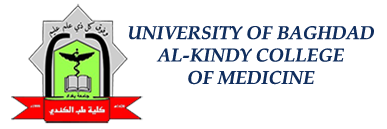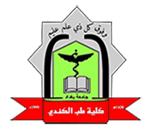In an insightful lecture held at Alkindy College of Medicine, University of Baghdad, Dr. Shaimaa Khaled delved into the complexities of pancreatic cancer, arming teaching staff with comprehensive knowledge and practical strategies to address this challenging disease. The lecture, held under the esteemed guidance of college dean Professor Dr. Mohammed Shahab Al-Edani, provided a valuable platform for faculty members to enhance their understanding and equip themselves with the tools to effectively educate their students and guide their patients.
Dr. Khaled meticulously outlined the prevalence, diagnosis, and treatment options for pancreatic cancer, emphasizing the critical role of early detection in improving patient outcomes. She highlighted the grim prognosis associated with pancreatic cancer, particularly its late-stage diagnosis and limited treatment options. However, she stressed the importance of vigilance and prompt action, as early detection can significantly increase the chances of successful intervention.
Dr. Khaled painted a stark picture of pancreatic cancer’s impact, highlighting its grim prognosis and rising incidence. She explained that pancreatic adenocarcinoma, the most common form of the disease, accounts for nearly 90% of cases, and its diagnosis often comes at an advanced stage, limiting treatment options.
Despite the challenges, Dr. Khaled emphasized the importance of early detection, underscoring the role of symptoms like pain, jaundice, and gallbladder enlargement in raising suspicion. She also discussed the diagnostic tools available, including blood markers like CA19-9 and CEA, which can aid in identifying the disease.
Surgical intervention, while curative, remains limited due to the rarity of early detection. Dr. Khaled explained that the success of surgery depends on factors such as
In addressing the challenges of pancreatic cancer management, Dr. Khaled encouraged teaching staff to embrace a multidisciplinary approach, emphasizing the importance of collaboration among healthcare professionals. She stressed the need for open communication and coordination between oncologists, surgeons, radiologists, and palliative care specialists to ensure optimal patient care.
The lecture concluded with a resounding call to action. Dr. Khaled urged teaching staff to leverage their knowledge and expertise to raise awareness about pancreatic cancer, promote early detection, and advocate for advancements in research and treatment. By empowering their students and fostering a culture of proactive healthcare, teaching staff can play a pivotal role in combating this formidable disease.














